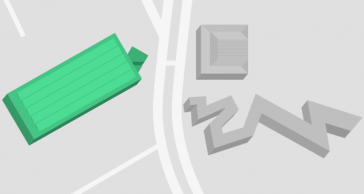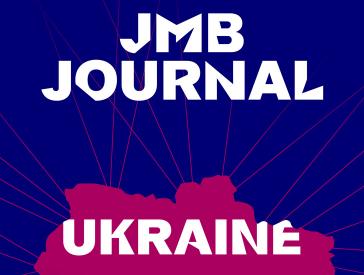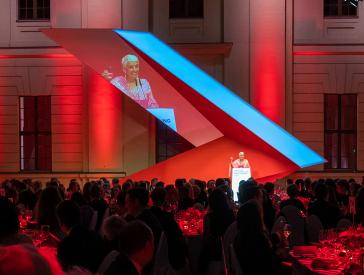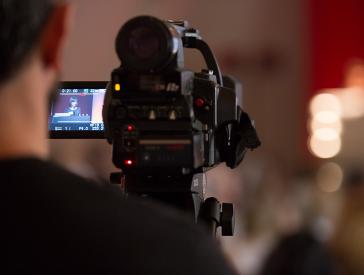
Ukraine in Context: Lviv
Jewish Perspectives on Ukraine, Present and Past (video recording available)
British expert in international law Philippe Sands, Ukrainian historian Sofia Dyak, and psychologist Marina Chernivsky will talk about the Jewish history of Lviv, the politics of memory in the Soviet Union and in Ukraine, and about international law and crimes against humanity, including in the context of Russia’s current war of aggression.
recording available

Where
W. M. Blumenthal Academy,
Klaus Mangold Auditorium
Fromet-und-Moses-Mendelssohn-Platz 1, 10969 Berlin
(Opposite the Museum)
Video recording from 8 May 2023; Jewish Museum Berlin 2023
Lviv, or Lwów, and sometimes also referred to as Lemberg, is in Galicia, and is the largest city in western Ukraine. Since the eighteenth century, it has become a hotly contested region of imperial, national and supranational interest. Lviv has belonged to different states at different times, from Austria and Poland to the Soviet Union. It therefore seems no accident that two leading figures of modern international law studied at the University of Lviv: jurist Raphael Lemkin, who coined the term “genocide,” and legal scholar Hersch Lauterpacht, who made crucial contributions to the development of international law and crimes against humanity.
The special political history of the city of Lviv, as well as the almost complete annihilation during the Second World War of the once thriving Jewish community, is the topic of the fifth edition of our discussion series Ukraine in Context.
In the discussion series Ukraine in Context, the Jewish Museum Berlin, the German Federal Agency for Civic Education and OFEK aim to make Jewish perspectives on the war in Ukraine audible and visible, and provide insights into the complexities of present-day Ukraine in its historical context. Using the cities Kharkiv, Chernivtsi, Odesa, Dnipro, and Lviv, Ukrainian artists and academics will talk about life and survival in war, about plural affiliations, competing memories, identities and visions of cities and history.
A series of talks by the Bundeszentrale für politische Bildung (German Federal Agency for Civic Education), the Jewish Museum Berlin and OFEK.
Discussion Series: Ukraine in Context (6)


















